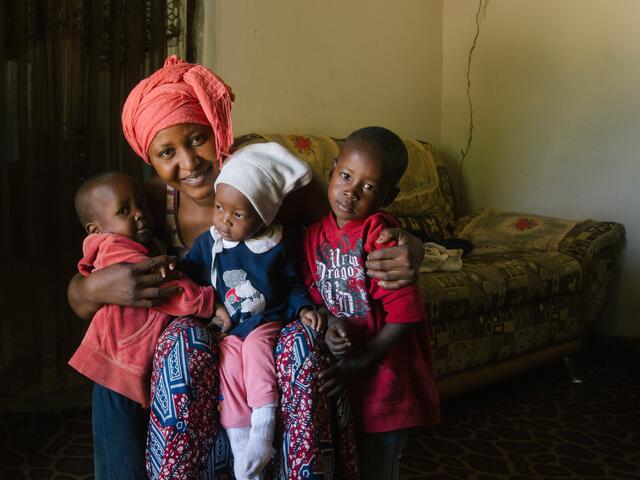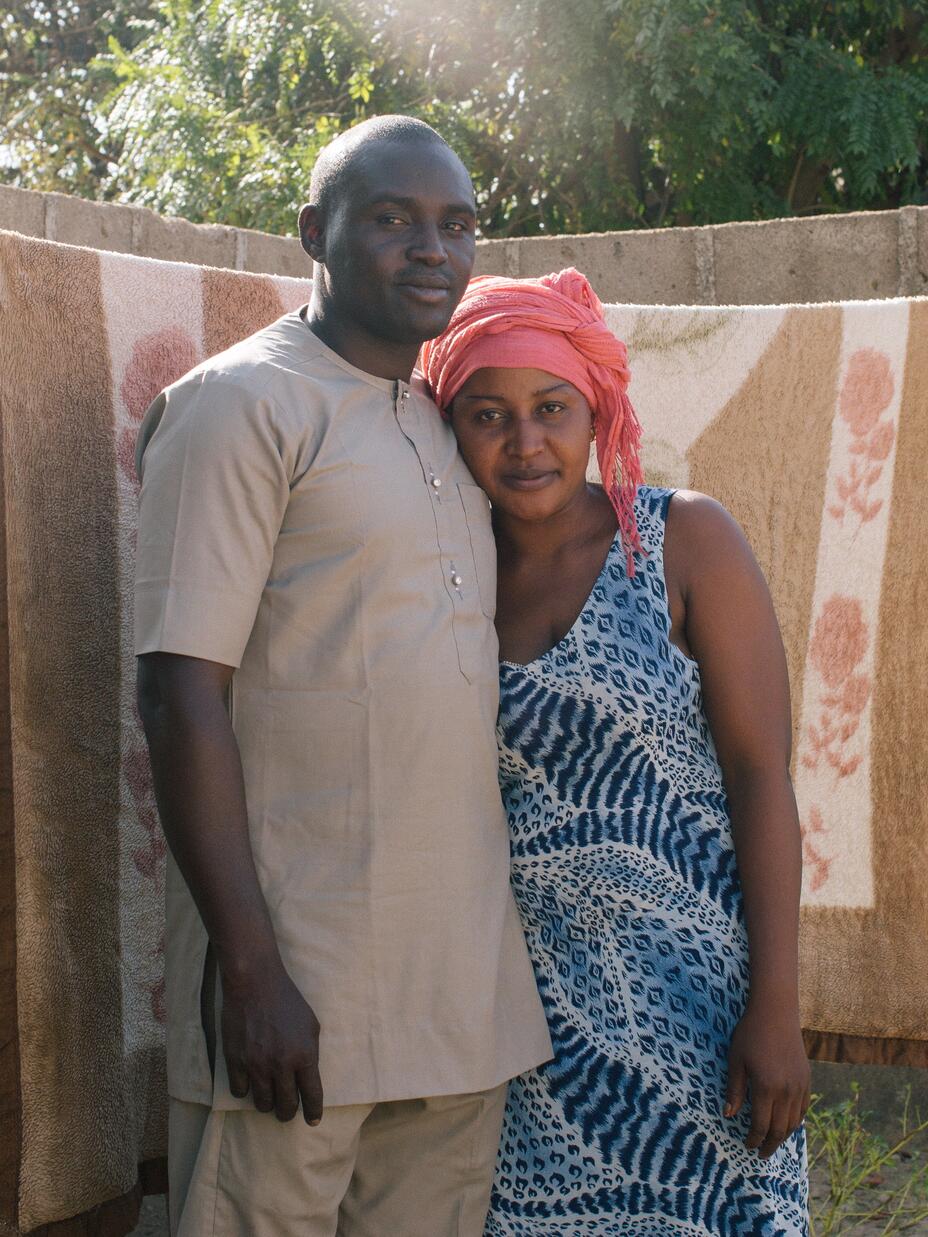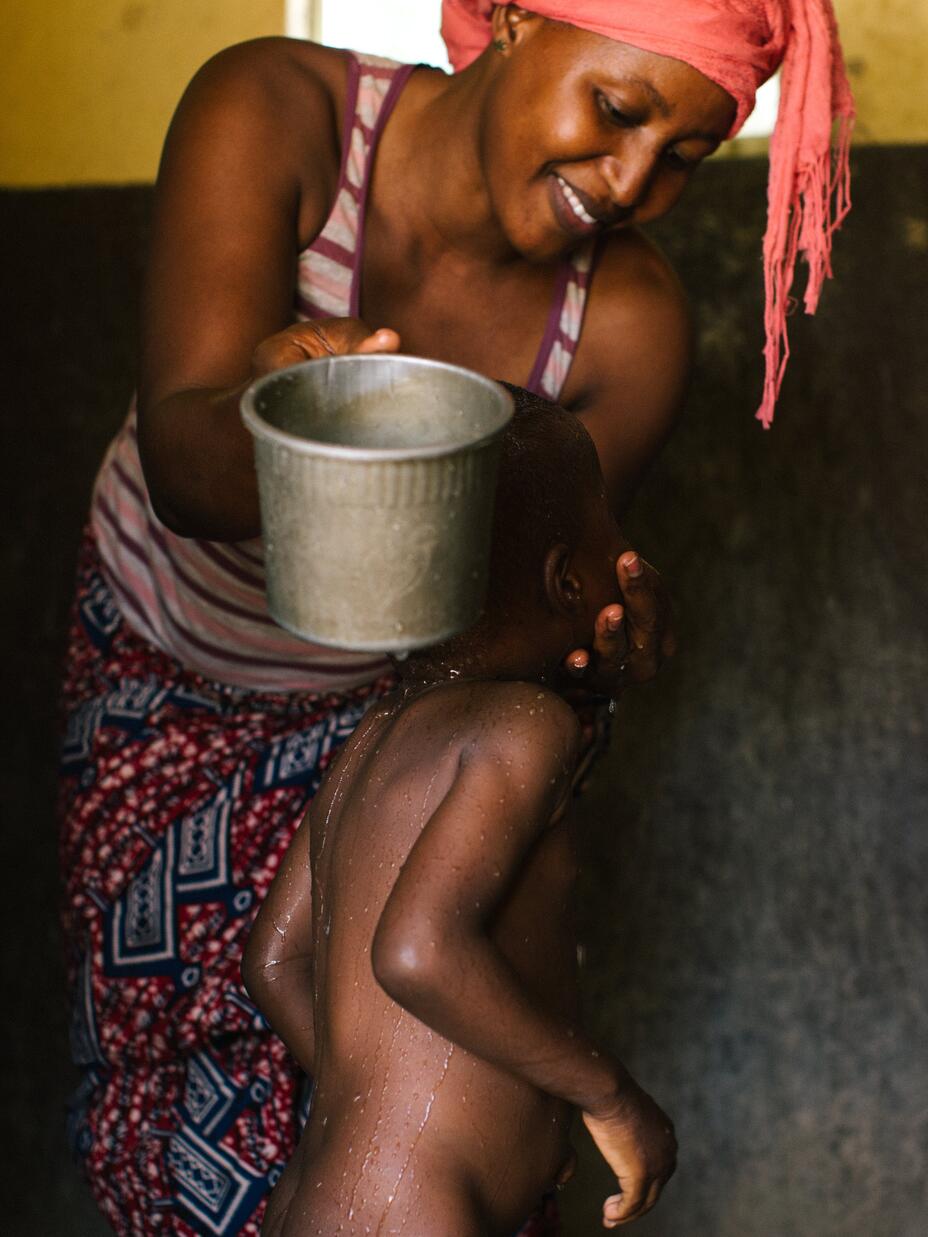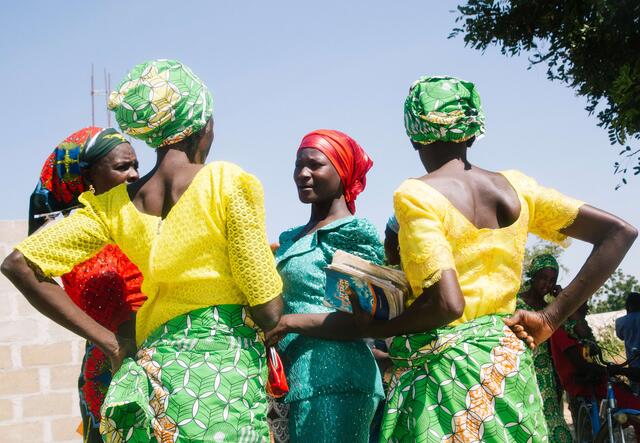I feel good when I’m breastfeeding my baby. It’s my way of giving her what I have. The milk a mother gives her baby is just right: it's not too hot, not too cold, it can be taken at any time, it’s natural! I believe that breastfeeding is good.

In Michika, northeast Nigeria, it’s traditional that after a woman gives birth the first thing she does is wash her body, and then she gets rid of the first milk that forms in her breasts - the thick yellow milk called colostrum. People believe colostrum is poison for their baby and will cause stomach ache, so they extract it from the breast and wait for the “fresh milk” to come. But that colostrum contains vital vitamins and is the baby’s first protection from disease.
Changing attitudes in my community
Around here, you see many parents giving impure water to their newborn babies in containers that are not clean. I say to them, ‘You don’t know what that water contains and yet you give it to your baby, putting them at risk of disease? Breast milk comes directly from your body - it is clean, full of goodness and cannot be contaminated.’ Exclusive breastfeeding - when you give your baby only breast milk from birth to six months - is good for your baby. I tell everyone about it. Since the IRC brought this to our village things have changed completely.

Often people say their milk will not be enough for the baby, even my own mother told me that I needed to give my baby water. But I said: ‘No Ma, I’ll not do it. Giving him water at this stage is not good.’ My son is very strong, healthy and sharp in his brain - so I thought, yes! This is the importance of exclusive breastfeeding. I have done exclusive breastfeeding with all three of my children and they did not become sick with stomach disorders like many other babies do.
Healthy baby, healthy mother
I believe a healthy baby means a healthy mother. I take good care of myself to see that I’m healthy, that the food I’m eating is good, that I’m drinking a lot of water and looking after myself.
Being a mother is hard. I have to see that all my children are healthy, that I’m giving them what they deserve and what they need. I am the one who gave birth to them and I am the one who will protect them. I will struggle just to make sure my children grow up in a good way and that they are strong and healthy. That’s what it means to be a mother.
If you don’t know what my community has been through, you might not understand why I need to make a difference here. Let me take you back five years:
Armed group Boko Haram takes control
I was six months pregnant with my first child when the Boko Haram fighters arrived. We didn't know how close they were until we were surrounded: everything was gunshots and smoke. My husband and I fled for safety, moving as fast as I could - which was slow - and passing dead bodies on the street as we went.

For weeks we were on the move. Each time we arrived at a new place Boko Haram would catch us up and we would move on again. We trekked for days through the mountains - down to the valley, up to the mountain top, down again, up again, no food, no water. Sometimes I couldn’t walk. My husband put his arm around my back and I wrapped my hands around the baby in my belly and we walked slowly on. At times he carried me.
Over and over in my head I had negative thoughts: ‘What if I lose my baby? Will these people slaughter me? Should we go this way or that way, this way or that way? Will they take my husband?’ Only my faith gave me the strength to carry on.
I did not think that Boko Haram would target me because I was very big and pregnant, but if they saw a lady with fresh, beautiful skin, maybe they would just go with her. I saw a young lady who was wearing a body-hugging top and trousers and they flogged her very hard. They said ‘Go and change your clothes. These clothes you are wearing are for prostitutes, not for you.’ She had blood and bruises up her arms and over her body.
They raped many girls, many became pregnant by them. Some of them became their wives, some were carried to their camps in the Sambisa Forest. I heard that if you refused to pledge allegiance to Boko Haram they would just cut your hands off, sometimes your legs. If you really didn’t obey what they were asking, sometimes they would just cut your throat and slaughter you. This is what happened in October 2014.
My community comes back together
Gradually families are returning to our village. Every Sunday I meet in church with people I never thought I’d see again in my life. People are still coming back: I see them and say ‘Yes, this is a person I know and he is still alive.’

Now, when I sit in that church, I’m very happy. Five years ago I thought the world would end. It felt like an apocalypse. But now we are back I’m doing everything I can to raise my children well and transform the health of the next generation to create a better future for this community.
Thanks to the support of the European Union Emergency Trust Fund for Africa, the International Rescue Committee is bringing the importance of exclusive breastfeeding to communities in Adamawa state, northeast Nigeria. The IRC supports local maternity clinics, trains community volunteers to reach the most remote mountain areas, empowers women like Jafiada to advocate for change in their communities, gives specialist care to support new mothers to breastfeed and provides urgent aid to malnourished children.
*Names have been changed throughout for privacy. This article was compiled from an interview with Jafiada.